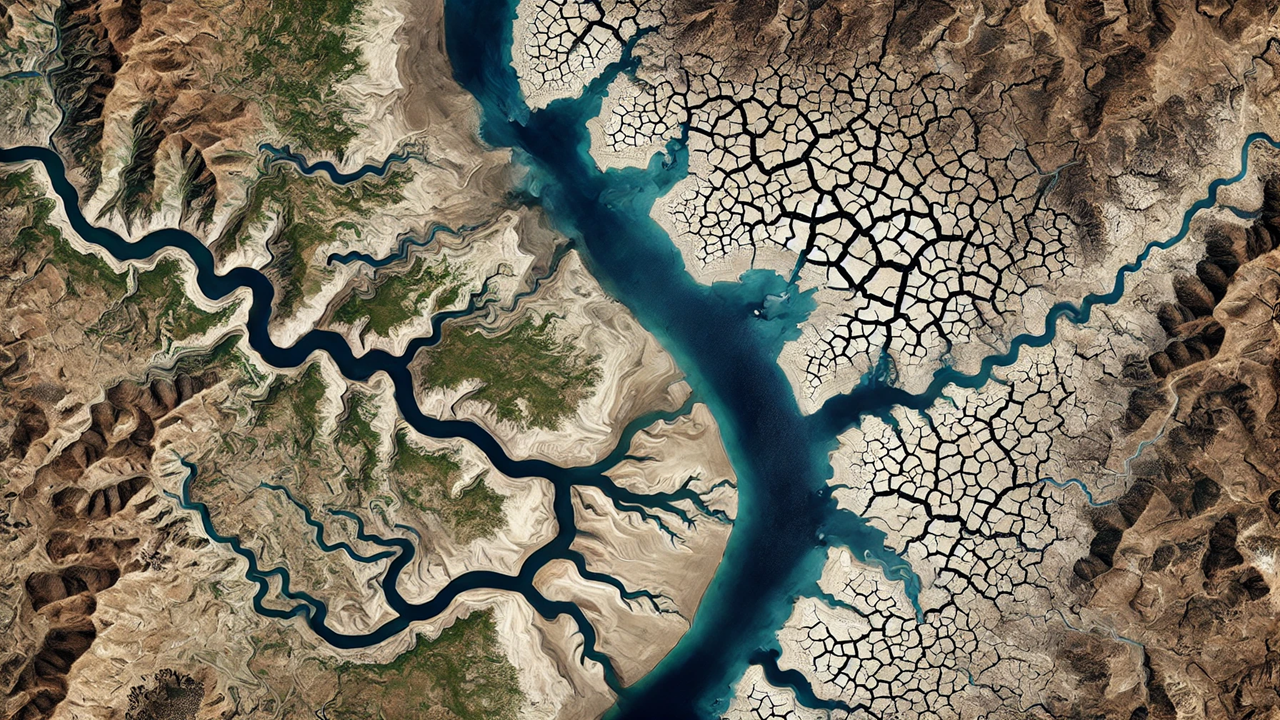Global Water Crisis: The Urgent Call to Protect Our Dying Freshwater Ecosystems
A new report reveals that nearly 50 percent of countries are experiencing significant degradation in their freshwater ecosystems, driven by pollution, climate change, and human activities. Immediate action, including integrated water management and investment in nature-based solutions, is essential to reversing these alarming trends.

As the world edges closer to the 2030 deadline for the United Nations’ Sustainable Development Goals (SDGs), the state of our planet’s freshwater ecosystems is sounding alarms across the globe. A new report titled Progress on Water-related Ecosystems: Mid-term Status of SDG Indicator 6.6.1 and Acceleration Needs with a Special Focus on Biodiversity reveals a troubling reality: the ecosystems that sustain life on Earth are in rapid decline.
Freshwater Ecosystems: The Lifeblood of Sustainable Development
Freshwater ecosystems, which include rivers, lakes, wetlands, and mangroves, are not just environmental assets; they are essential to human survival. These ecosystems support biodiversity, ensure food and water security, and play a crucial role in our health and prosperity. However, the new report highlights that nearly 50% of countries are witnessing the degradation of one or more freshwater ecosystem types.
The degradation of these ecosystems is largely attributed to human activities. Pollution, land conversion for agriculture or urban development, over-abstraction of water, and the ever-intensifying effects of climate change are the main culprits. These factors have led to significant changes in water quantity, quality, and area—changes that threaten the sustainability of life as we know it.
The Decline of Rivers, Lakes, and Mangroves
The report provides a detailed account of the alarming trends observed in key freshwater ecosystems:
Rivers: River flows have decreased significantly in many basins around the world. This decline is affecting over 100 million people who rely on these rivers for drinking water, agriculture, and other needs. The loss of natural river flow is particularly detrimental to freshwater biodiversity, as many species depend on specific flow conditions for survival.
Lakes: Surface water bodies, particularly lakes, are shrinking or disappearing at an alarming rate. In 364 basins worldwide, permanent water sources have been receding, impacting nearly 100 million people. The shrinking of lakes is not just a matter of losing water; it disrupts entire ecosystems and the human communities that depend on them.
Water Quality: The report highlights that many large lakes are experiencing high to extreme levels of turbidity (cloudiness) and eutrophication (nutrient overload leading to excessive plant growth and oxygen depletion). These changes in water quality are particularly concerning because they directly affect both biodiversity and human livelihoods.
Mangroves: Mangrove ecosystems, which serve as critical buffers against coastal erosion and are rich in biodiversity, are also under severe threat. The loss of mangroves not only impacts the environment but also the millions of people who depend on these ecosystems for their livelihoods.
The Need for Immediate Action
The findings of the report make it clear: the time to act is now. Protecting and restoring freshwater ecosystems is not just an environmental issue; it is a matter of survival. The degradation of these ecosystems is a threat to food security, health, and economic stability worldwide.
To reverse these negative trends, the report calls for immediate, large-scale actions. This includes the implementation of integrated water resources management (IWRM) policies that address multiple pressures on freshwater ecosystems. Additionally, countries must recognize the interconnectedness of freshwater ecosystems with broader environmental goals, such as climate change mitigation and biodiversity conservation.
The report emphasizes the importance of investing in nature-based solutions and innovative technologies. By restoring and protecting freshwater ecosystems, we can secure a sustainable future for generations to come. However, this will require political will, financial investment, and a commitment to long-term planning.
A Call to Action
In a world where freshwater ecosystems are rapidly deteriorating, the responsibility lies with governments, businesses, and individuals alike. The stakes are high, and the window of opportunity is closing. The message from the report is clear: we must act now to protect our freshwater ecosystems, or we risk irreversible damage to the planet and our future.
- FIRST PUBLISHED IN:
- Devdiscourse










